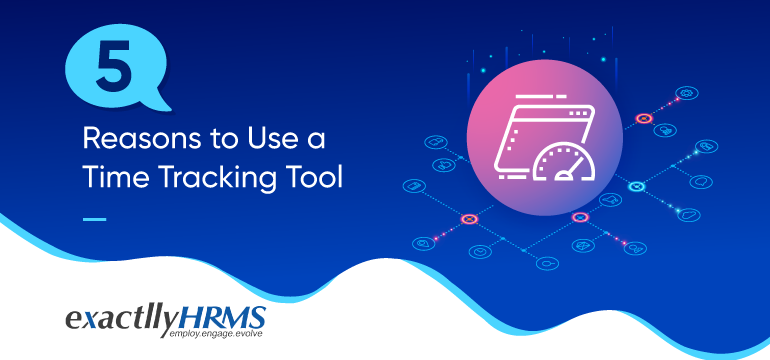Many years ago, people just looked at their watches and decided the number of hours they dedicated to a project. Today, it is just not necessary and a tad too outdated as well. Time tracking applications help clients and vendors to bill and be billed accurately. There have been instances of not being billed accurately, and also examples of feeling overworked. These and other negative consequences can all be avoided with the help of time tracking tools. Yet, there are many other benefits of a time tracking tool which goes beyond the obvious accuracy in payments.
Let us take a look at 5 reasons you should use a time tracking device for reasons other than accuracy in payments.
1. Improved communication
Many projects and teams fail because they are simply not able to communicate with each other effectively. One of the many reasons why they are not able to communicate effectively is they have no clue about project status and progress. A time tracking device adds to the sense of urgency and importance to projects, and communicate to everyone the status of a project. This ultimately results in improved communication within and between teams, and helps everyone to manage projects better. After all, tracking the time of a project is not just about time. It is also about discovering existing loopholes, hurdles and setbacks that could derail a project. In short, a time tracking tool helps everyone involved to communicate with each other effectively.
2. Enhanced productivity
Productivity is curtailed when communication breaks down within a team. It also breaks down when team members are unable to foresee urgency or lose track of their projects’ progress. A time tracking device accurately measures how much time is spent on each task within a project, and how far an individual or team is from the final goal. Foreseeing hurdles that could stop a team from reaching that goal allows them to make informed decisions that result in improved productivity. In other words, a time tracking tool is the perfect solution for enhancing productivity.
3. Better management of projects
One of the reasons why project management performs poorly is because not many processes are measured and quantified. Tracking time spent on each task gives a measurable number with which other KPIs can be measured. Most KPIs require time as a factor with which the numbers can be calculated. For a project to be successful, it should be based in real data and insight. Tracking time of each task will help team members to manage projects better and remain rooted to objectivity and rational planning. Without accurate time tracking, projects lose focus, communication breaks down and goals are not achieved. Integrating a time tracking tool within an HRMS is a smart decision to make, and will help your team to function efficiently and achieve project goals well within the stipulated time.
4. Track and manage invisible tasks
Any project manager will confirm the fact that each project has many invisible tasks, and most tasks have invisible processes that often are not accounted for. This often causes delays in completing projects, and even Agile strategy may not help in tracking these invisible tasks. A time tracking tool can help you identify which invisible processes are causing bottlenecks and why you seem to be working so hard without achieving the results. In other words, once you identify these invisible processes, you can either add it to the bill or ensure that the invisible processes are accounted for in some way. With invisible tasks being accounted for, you will not have to address issues of mistrust and lack of confidence.
5. Enhance transparency
Transparency is the ultimate trust-building factor in every project. Without trust, projects cannot be completed successfully. It can also result in disputes that can cause unnecessary friction within a team, or between clients and vendors. A time tracking tool adds a level of transparency that is simply not possible with other tools. Consequently, there will be no room for confusions, mistrust or suspicion. Relationships get better and projects are completed in time. As a result, teams work happily in unison, and you can also foster better relationships with your clients and vendors. To learn how you can use time tracking tools in your specific context, contact us today for a consultation.
In a changing world, time tracking solidifies trust and value
Certainly, using a time tracking tool goes beyond the obvious benefit of being billed accurately. When you use an application to track time spent in a project, you will, first of all, enhance communication within and between teams. Secondly, it improves productivity by letting everyone who needs to know assess what needs to be done in order to complete projects. This directly improves productivity. Consequently, businesses will be able to manage their projects better and ensure that their clients are satisfied.
Another important goal of a time tracking device is to discover if there are any invisible tasks that need to be billed or managed. Finally, time tracking brings a culture of transparency to the table and helps everyone to enhance existing and future relationships, which are based in trust and value. To integrate a time tracking tool with your HRMS, contact us now.





Leave a Reply